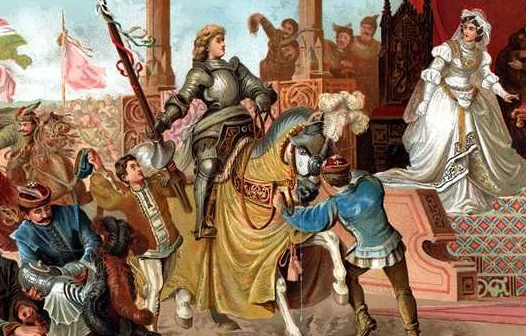Change language:
Was Hungary’s greatest king Romanian?

Without doubt, King Mathias (1458-1490) was one of the greatest Hungarian kings. During his reign, the Kingdom of Hungary became a European superpower. Mathias kept a regular army of 9-15 thousand strong soldiers, successfully reformed state administration and introduced Renaissance and humanism in his court. Romanian history books write he was Romanian, while Hungarians insist Mathias was Hungarian. Who is right?
Nationality did not exist in the Middle Ages
King Mathias was born on 23 February 1443 as the younger son of János Hunyadi, the later defender of Nánforfehérvár (1456), where he defeated the Ottoman Empire. Bells ring at noon because of that great victory. But was he and his son Romanian or Hungarian?
24.hu talked with Richárd Horváth, a Historian of the Eötvös Loránd Research Network. He said that Mathias could not understand a question regarding his nationality. That is because the notion of ethnicity, which is related to culture, language, history, etc. did not exist back then. There was no such phenomenon in the 15th century as nationality.
People defined themselves by their religion and the lords of monarchs they served. Somewhere in that line, it would probably pop up the lingua franca they spoke, but that was not very important. But that would be an easy way to answer the question of King Mathias’s “nationality”. Let us take a look at the sources.
Mathias’s family is well documented
Thankfully, King Mathias’s family history is well documented. That is because the Hunyadi family died out with the early death of King Mathias’s grandson, Kistóf in 1505. As a result, the Crown inherited the Hunyadi estates, and King Vladislaus II of Hungary (1490-1516) gave them to George of Brandenburg, his cousin. George spent some years in Hungary, but when he realised the Jagiellonian dynasty would not be able to defend itself against the Ottoman expansion, he fled.
And he took all the documents concerning his estates to the Holy Roman Empire. As a result, they survived Ottoman rule, and we can read them today.
According to those papers, King Mathias’s grandfather received the fort of Vajdahunyad from King Sigismund of Luxembourg in 1409. The first royal charter János Hunyadi, Mathias’s father, received refers to him as a Vlach.
King Mathias’s mother tongue revealed
Those days meant he came from Wallachia, a region of today’s Romania where the country’s capital, Bucharest, is located. However, in the 15th century, Wallachia was an ethnically mixed land. And the contemporary documents mention nothing more about János’s mother tongue or ethnic background.
Mathias spoke German, Czech, Hungarian and Latin. Most of his letters were written by his humanist scholars. But we have some short administrative orders, which he dictated in his mother tongue and were translated to Latin. And those contain a lot of so-called Hungarisms, which proves that his mind was wired in a Hungarian way.
Therefore, we know that his lingua franca was Hungarian. Moreover, he defined himself as a nobleman and later the king of the Kingdom of Hungary. Though the analysis of the bones of his descendants might tell more details about his ancestors, it will not reveal anything about his thoughts. Hence, we should just simply accept that he was one of the greatest kings of Hungary and Central Europe, Mr Horváth believes.








Perhaps it is a result of an error in translation but the term lingua franc is used incorrectly here. The literal meaning is language of the Francs but in modern usage it refers to a common language spoken by different ethnic groups in order to communicate. https://dictionary.cambridge.org/dictionary/english/lingua-franca For example the current lingua franca is English. I think the term mother tongue is meant in this article.
According to Britannica, “János [Hunyadi – King Mathias father] was of Walachian (Romanian) ancestry, his family originating in Hateg, Transylvania, a region now in Romania.”
https://www.britannica.com/biography/Janos-Hunyadi